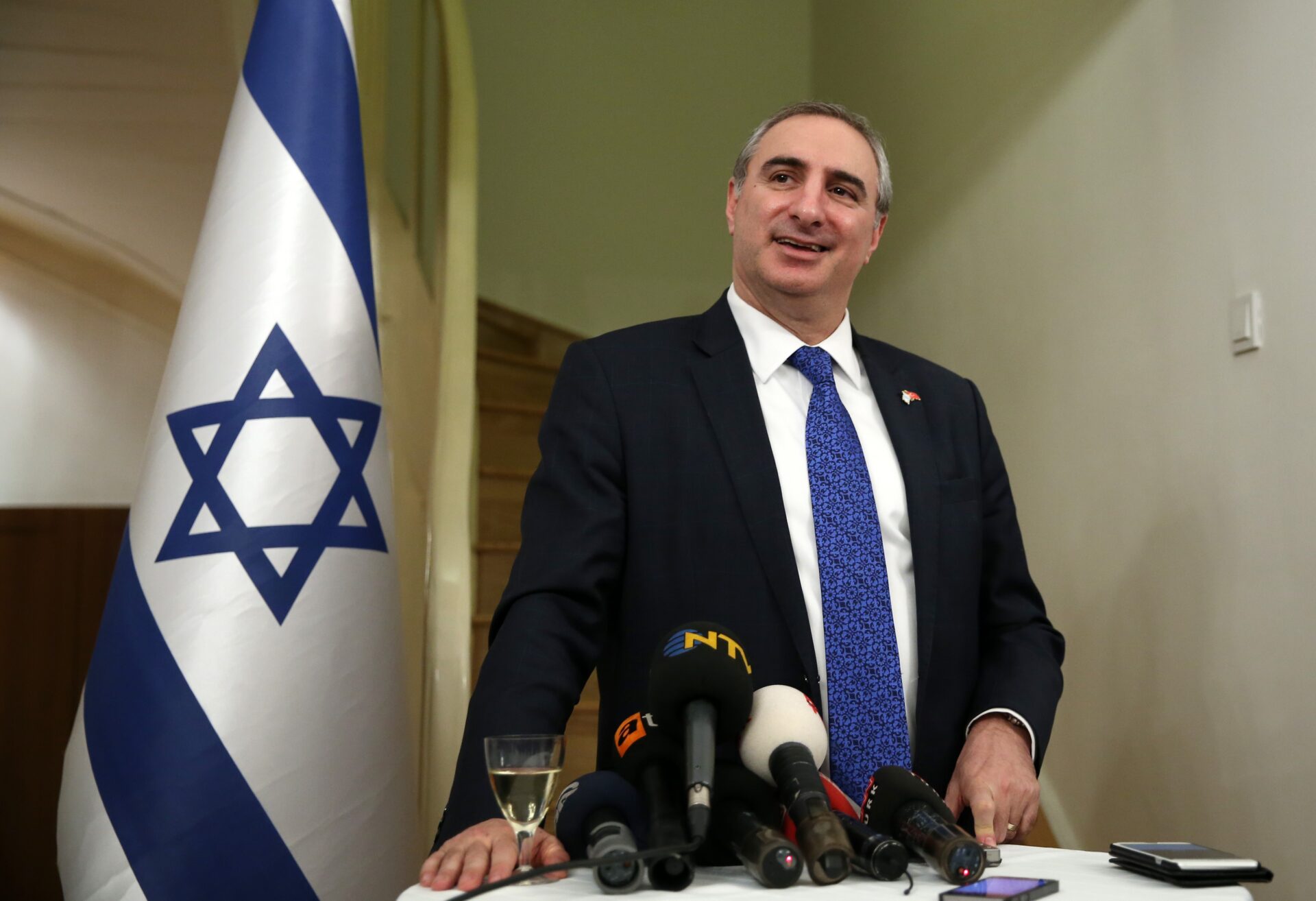Meet the Israeli diplomat at the forefront of the Abraham Accords
Eitan Na’eh was the first Israeli diplomat in the UAE before moving to Bahrain

Emre Senoglu/Anadolu Agency/Getty Images
Then-Israeli Ambassador to Ankara Eitan Naeh gives a speech during his first reception in Ankara, Turkey on December 5, 2016.
Less than a month after presenting his credentials to King Hamad bin Isa Al Khalifa, Israel’s ambassador to Bahrain, Eitan Na’eh, is still marveling at his new position. The longtime Israeli diplomat, who was famously expelled from Turkey in...











 Add The Circuit on Google
Add The Circuit on Google

